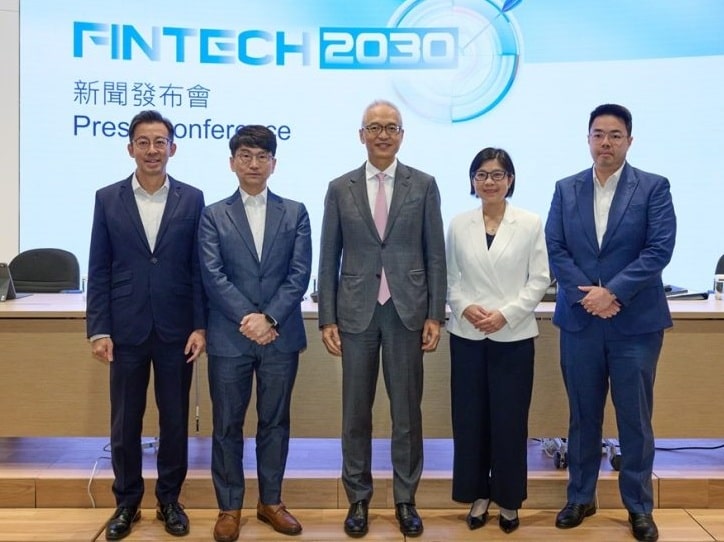HONG KONG, November 7, 2025 – The Hong Kong Monetary Authority (HKMA) has unveiled a new blueprint to guide the next phase of financial innovation, announcing its “Fintech 2030” strategy on the opening day of Hong Kong FinTech Week 2025.
The plan outlines more than 40 initiatives under four central pillars — Data, Artificial Intelligence, Resilience, and Tokenisation of Finance, collectively referred to as “DART”. The new framework builds on earlier efforts such as Fintech 2025 (2021), the Fintech Promotion Roadmap (2023), and the RegTech Roadmap (2020), marking what HKMA Chief Executive Eddie Yue described as the start of “a Fintech 3.0 era.”
Speaking at the event, Yue said Hong Kong’s fintech journey had moved from early adoption to a focus on “responsible innovation.”
“Innovation brings huge opportunity but also risk,” Yue noted. “While adopting innovation carries risk, standing still carries an even greater one—the risk of falling behind. In today’s fast-moving world, slow adoption is hardly innovation at all.”
Yue described artificial intelligence as the most transformative of the new pillars, adding that a comprehensive AI strategy will be launched to bring together regulators, banks, technology firms and academia to embed AI safely and transparently into the financial system.
Data and AI: Building Smart and Secure Infrastructure
Under the Data pillar, the HKMA aims to strengthen infrastructure for secure, scalable data sharing and cross-border payment connectivity, laying the groundwork for more personalised financial services and improved access to trade finance and remittances.
The AI pillar sets out a “holistic” strategy to encourage responsible adoption across the sector, supported by the development of shared AI infrastructure and finance-specific models. The authority said its goal is to make financial services more accessible and responsive, while maintaining “transparency and accountability to ensure public trust.”
Current AI-related efforts include the Generative AI Sandbox, launched earlier this year to test financial applications of large language models, and Project Noor, developed with the BIS Innovation Hub to create explainable AI tools for regulators and banks.
Resilience: Cybersecurity and Quantum Readiness
The Resilience component focuses on strengthening cybersecurity through a fintech-specific certification framework and real-time monitoring systems. The HKMA also plans to prepare the industry for a future shaped by quantum computing, encouraging early adoption of post-quantum cryptography (PQC) and quantum-safe infrastructure to secure financial data.
Tokenisation: From Government Bonds to Real-World Assets
In its Tokenisation of Finance pillar, the HKMA outlined plans to accelerate the tokenisation of real-world assets, including financial instruments, and to regularise the issuance of tokenised government bonds. Hong Kong was among the first markets globally to issue a tokenised green bond in 2023, and the latest strategy aims to make such digital bond issuances a standard practice.
The authority also revealed it is exploring tokenising Exchange Fund papers, Hong Kong dollar-denominated securities issued by the HKMA, and integrating settlement through digital money instruments such as the e-HKD, tokenised deposits, and regulated stablecoins.
These developments will be tested through the upcoming Project Ensemble pilot, a wholesale central bank digital currency (CBDC) initiative that will facilitate interbank settlement of tokenised assets. The project, first announced in 2024, aims to promote collaboration among banks, fintechs, and other central banks on tokenisation use cases.
Cross-Boundary Data and Mainland Collaboration
The HKMA’s data-sharing efforts also include the Shenzhen–Hong Kong cross-boundary data validation platform, launched in partnership with mainland authorities earlier this year. Using blockchain-based hash validation, the system allows document verification between the two jurisdictions without transferring or storing original data, supporting smoother cross-border financial operations.
The collaboration underscores Hong Kong’s ambition to serve as a bridge between Mainland China and global markets, especially in areas of data governance, fintech regulation, and digital currency infrastructure.
A Decade of Fintech Progress
Hong Kong FinTech Week, co-organised by the HKMA and InvestHK, marks its 10th anniversary this year. Since its launch in 2016 with about 2,500 participants, the event has grown to attract over 37,000 attendees from more than 100 economies, making it one of Asia’s largest fintech gatherings.
With Fintech 2030, the HKMA appears intent on positioning Hong Kong as a testbed for next-generation financial systems, where AI, data, and tokenised finance can converge under a regulatory framework built on trust and resilience.
“With the foundation laid under Fintech 2025, we are ready to enter a new era where technology is embedded in daily life, powered by transparency and intelligence,” Yue said. “Our goal is to ensure innovation delivers real-world impact while maintaining lasting resilience.”


